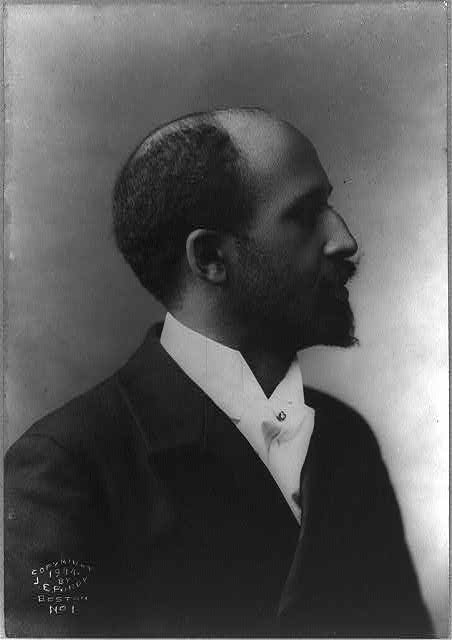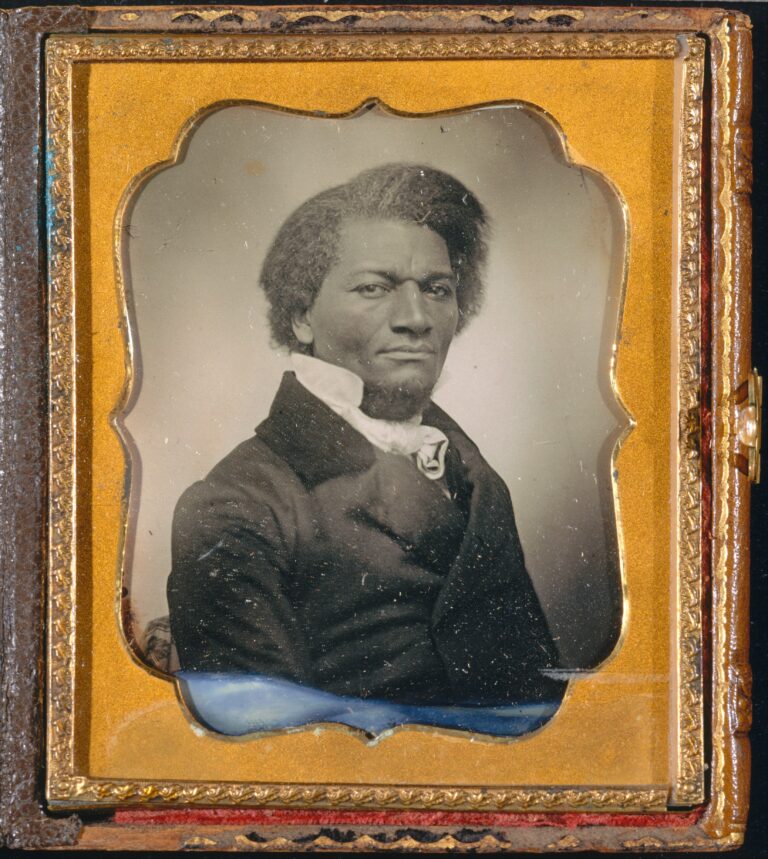The Propaganda of History
On Trump and the distortion of Black History.

On February 20th, the White House hosted a Black History Month celebration, an annual event to recognize African American contributions to American History. Several African American Trump supporters attended the event, including Hershel Walker, former Georgia Republican Senatorial candidate, Tim Scott, Republican Senator from South Carolina, Sage Steele, former ESPN host, and Alveda King, niece of Martin Luther King, Jr.
Donald Trump and Tiger Woods entered the venue together, and the president referred to Woods as a great golfer and as a symbol of Black History. However, Woods who has called himself “Cabliasian,” and to my knowledge during his entire career has never uttered a word about Black History. (I am confident he cannot tell you who founded Black History Month.)
Trump used the occasion to dismiss Nikole Hannah Jones’s 1619 Project that placed African Americans at the center of American history. According to Trump, “The last administration tried to reduce all American history to a single year, 1619. But under my administration, we honor the indispensable role black Americans have always played in the immortal cause of another day 1776. We like 1776.”
Yet the American Revolution did not end slavery. Following the war, the Founding Fathers met in Philadelphia and created the Constitution—which the abolitionist William Lloyd Garrison called a “covenant with death” because it protected slavery. Trump’s White House Black History Month celebration was nothing more than what W.E.B. DuBois called “the Propaganda of History.”
In his Black Reconstruction in America (1935), DuBois challenged the racist interpretation of Reconstruction offered by William B. Dunning, who had argued that “idle free blacks” refused to work and warned that Black men were on the loose to sexually assault white women.
White historians like Dunning had referred to Reconstruction as “The Lost Cause” and “Negro Supremacy.” Dunning taught at Columbia University, demonstrating that racist ideology was a national disease. It impacted the majority of white Americans, including white intellectuals.
This racist interpretation even made its way to the screen in the 1915 classic film Birth of a Nation, a movie President Woodrow Wilson, who had a Ph.D. in history, screened at the White House. He also praised the film, observing, “It’s like writing history with lightning. My only regret is that it is all so terribly true.”
In refuting these arguments by white American historians, DuBois provided a bibliography that categorized books according to their interpretation of African Americans. These included works that were “Standard-Anti Negro,” “Propaganda,” and “Fair to Indifferent on the Negro.” DuBois also highlighted the work of “Negro Historians,” monographs published by African American scholars who presented an uplifting interpretation of the race. During our own chaotic era, one must make time to read this chapter because during the next four years we are going to witness the propaganda of History.
DuBois offered a compelling interpretation of Reconstruction that is relevant for current debates about citizenship in the US today. In Black Reconstruction, he wrote, “White historians have ascribed the faults and failures of Reconstruction to Negro ignorance and corruption. But the Negro insists that it was Negro loyalty, and the Negro vote alone that restored the South to the Union; established the new democracy, both for white and black, and instituted the public schools.” I bolded white here because many Americans believe Reconstruction, the Civil Rights movement, and the Democratic Party, only or disproportionately, benefitted African Americans. This remains a popular belief even though poor southern whites attended public schools, and white women have long been the number one beneficiaries of affirmative action.
Despite these two key facts, the right-wing conservative American propaganda machine convinced Trump voters that Black people received all the benefits from affirmative action. MAGA supporters believe white men and women “have lost ground” to African Americans even when they can point to no data to confirm this view (often choosing instead to highlight very wealthy African Americans such as Oprah, Obama, and Lebron). Whites are a majority in the United States; therefore, more whites benefit from any social policy. For instance, more white women receive welfare and social security benefits than African Americans.
In his National Black History Month 2025 statement, Trump called upon “public officials, educators, librarians, and all the people of the United States to observe this month with appropriate programs, ceremonies, and activities.” But what did he mean by “appropriate”?
What Trump means is what DuBois castigated ninety years ago as “the Propaganda of History.” Trump’s understanding of an “appropriate” recognition of Black History is rooted in American propaganda—and a misguided view of the US as a colorblind society and a meritocracy and of American history as the story of exceptionalism, individualism, and progress.
His interpretation of Black History views African American History as an uninterrupted story of racial progress. In other words, Trump and other conservatives will highlight African American progress and mention the success of African American conservatives such as Supreme Court Justice Clarence Thomas. He also mentioned abolitionist Frederick Douglass. But he will not highlight Douglass’s infamous 1852 speech, “What to the Slave is the Fourth of July?”
Moreover, there are facts that paint a picture very different from Trump’s vision. The Black unemployment rate is twice the white rate, and the Black infant mortality rate is twice the white rate, even when factoring in class. In Where Do We Go from Here: Chaos or Community (1965), Martin Luther King, Jr said, “Of all the good things in life he has approximately one-half those of whites; When we turn to negative experiences of life, the Negro has a double share, There are twice as many unemployed. The rate of infant mortality among Negroes is double that of whites.” Fifty-nine years after King published this book, the African American unemployment rate and infant mortality rate remain twice that of whites.
Emphasizing Black progress does not mean racism does not exist; the two things can exist at once. In Trump’s world, institutional racism does not exist and is not the cause of those rates. He believes Black culture and poor values are the reasons for African American “negative experiences.”
For Trump an “appropriate” recognition of Black History Month does not include the celebration of Black activists the likes of Ella Baker or organizations such as the Student Non Violent Coordinating Committee who criticized American hypocrisy. Any Black leader who Trump has recognized is reduced to a simplistic “patriotic” historical soundbite rather than a historically accurate interpretation. Dr. Martin Luther King Jr. is recognized for his “I Have a Dream Speech,” but Trump will overlook his critique of capitalism, militarism, and poverty. Rosa Parks is reduced to the dignified Black woman who gave up her seat on the bus, but the president will never discuss her activism before and after the bus boycott. I am not surprised by Trump’s interpretation of African American history and would never expect the White House to present an accurate interpretation of it.
Fortunately, African Americans across the country are creating Freedom Schools and online communities to study and engage in robust conversations about African American History. Organizations such as the Association for The Study of African American Life and History, founded in 1915 by Dr. Carter G. Woodson, the father of Black History Month, the African American Intellectual History Society, and the National Council for Black Studies.
African Americans will continue to celebrate Black History Month the appropriate way: by providing inspirational stories that motivate young people, documenting and providing new and valuable interpretations, and continuing to call out the impact of racial oppression. 2025 is the 90th anniversary of W.E.B. DuBois’s Black Reconstruction, and, unfortunately, the White House has just endorsed “The Propaganda of History.” However, African Americans will still mark Black History Month in the tradition of inspiration, resistance, and resilience.
Dr. David A. Canton is Director of the African American Studies Program and Associate Professor of History at the University of Florida.



